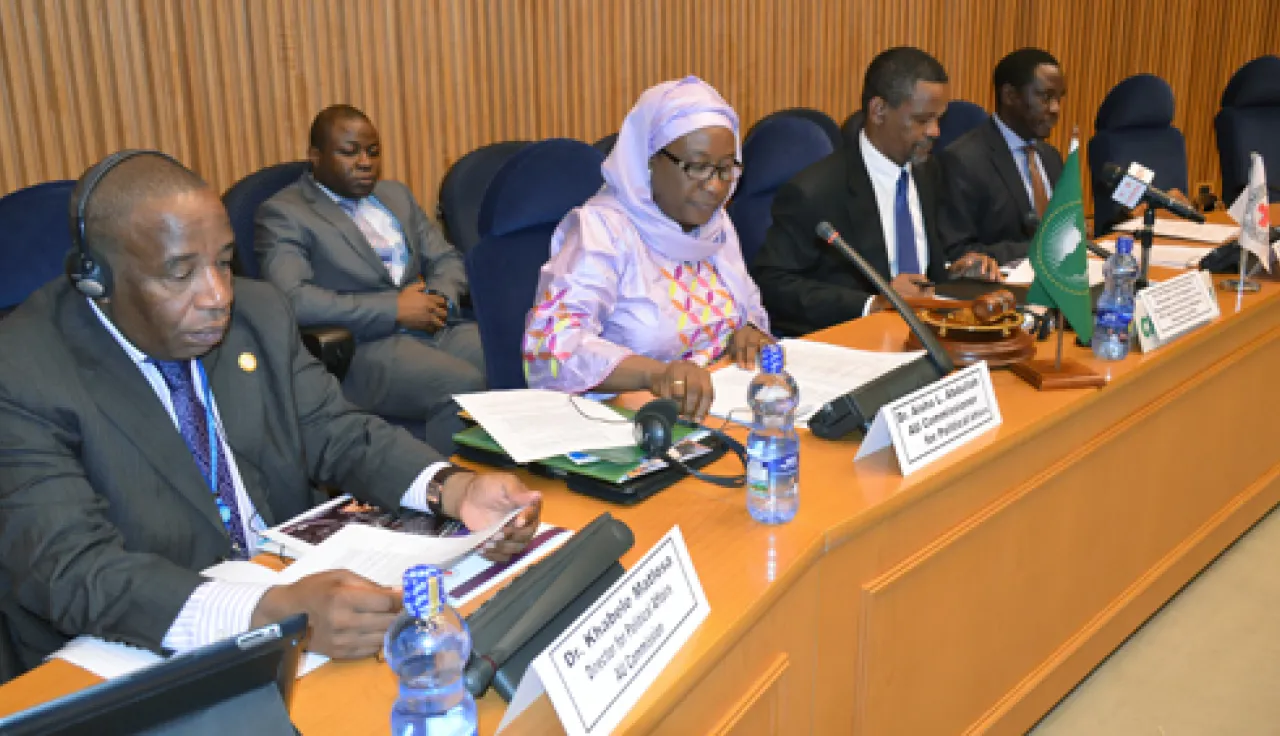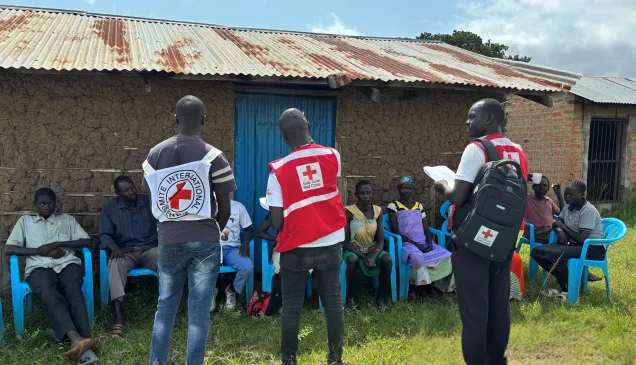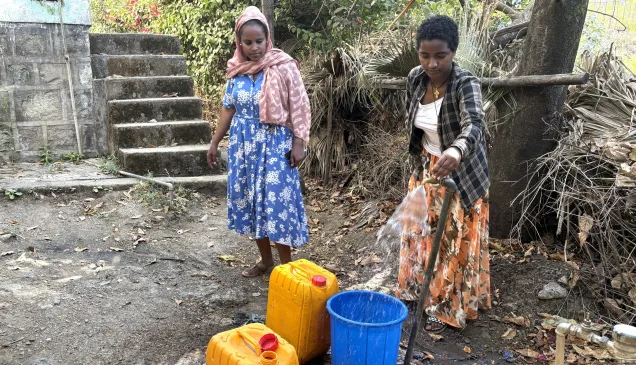Addis Ababa (ICRC) – The African Union (AU) Commission and the International Committee of the Red Cross (ICRC) jointly held a seminar in Addis Ababa on 22 October on the protection of health services in situations of armed conflict and other emergencies. The adoption and reinforcement of national legislation was one of 20 recommendations adopted by the AU Permanent Representatives’ Committee (PRC).
In 2012, the ICRC launched the "Health Care in Danger" project that aims at improving the efficiency and delivery of effective and impartial health care in armed conflicts. The one-day seminar that took place at AU headquarters in Addis Ababa brought together under this framework 80 representatives of member States of the AU, key global institutions and health-care providers in Africa, and members of the non-African diplomatic corps and other humanitarian partners.
"The AU has recognized access to health care as a basic human right and has undertaken to play a leadership role in this regard through its commitment under Agenda 2063 and the Common African Position on the post-2015 Development Agenda," said the chairperson of the PRC Sub-Committee on Refugees, Returnees and IDPs, Ambassador Goncalves of Mozambique.
In view of the challenges involved in providing safe access to and delivery of health care on the African continent, in particular in Ebola-affected countries, the AU commissioner for political affairs, Dr Abdullahi, stressed the importance of the seminar as a way of reminding States of their responsibility to build resilient health systems involving prevention and awareness-raising measures.
"Since 1994, the ICRC and the AU have held biannual seminars on pressing humanitarian issues," said Bruce Mokaya, head of the ICRC delegation to the AU. "The aim of this year’s event on the protection of health care in conflict and other emergencies is to create a forum for the exchange of good practices among AU member States and the ICRC, national Red Cross and Red Crescent societies, the World Health Organization and other humanitarian partners."
In addition to the recommendation to adopt and reinforce national legislation designed to protect health-care personnel and facilities, medical transports, and patients, the adopted proposals included providing training for armed and security forces, civil servants and health-care workers, and raising awareness among the population at large of domestic legislation protecting people providing or receiving health care. Improved coordination between those providing emergency health care and enhanced respect for the red cross, red crescent and red crystal emblems – and vigorous prosecution in the event of any misuse of the emblems – were also among the recommendations.
See also:
African Union: Protection of health care services in armed conflict and other emergencies
For further information, please contact:
Belain G/Medhin, ICRC delegation to the AU, tel: +251 911 685 861




